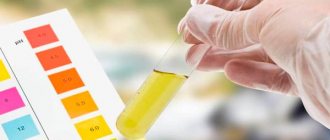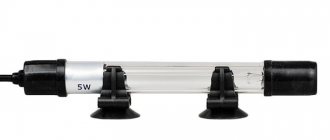Clean, free water is the basis of good health. The body is composed primarily of water, so constant consumption...
Clean, free water is the basis of good health.
The body is composed primarily of water, so constant water intake is very important for every function of the body .
It is common knowledge that most water sources today are contaminated, but there is a great deal of confusion about which drinking water is best for promoting health and which home water treatment produces the best quality drinking water.
The problem is that public water supplies are laced with dangerous contaminants such as disinfection byproducts (DBPs), fluoride, and pharmaceuticals, for example.
However, water should be your drink of choice if you want to be healthy - but the water must be purified.
Also, besides filtering water, there is an aspect of its pH - alkaline water versus acidic .
A lot has been said about the dangers of alkaline water, but is it true? Most of these statements are not.
The theory of alkaline water, in a nutshell, is that alkaline (ionized) water is a powerful antioxidant with an excess of electrons that can “sweep out” harmful free radicals coursing through the veins .
Marketers claim that alkaline water can correct excess tissue acidity, which can subsequently help prevent or reverse cancer, arthritis and other degenerative diseases.
Subscribe to our INSTAGRAM account!
Types of water available to you
Purified water is water that has been physically processed to remove impurities (such as through distillation, deionization, reverse osmosis, carbon filtration, etc.)
Distilled water - water is boiled and evaporated to remove dissolved minerals, and then the vapors are condensed.
Bottled water. As a rule, water is bottled from a spring or water that has undergone a reverse osmosis process. However, some brands simply bottle tap water and it is unknown whether it has undergone any additional filtration.
Alkaline water is water that has been separated into alkaline and acidic fractions using electrolysis. At the same time, the drinking water industry uses the natural electrical charges of calcium and magnesium ions.
Deionized or demineralized water is water from which mineral ions (such as sodium, calcium, iron, copper, chlorides and bromides) have been removed by exposing it to electrically charged resins that attract and bind the salts.
Hard and Soft Water: Hard water is any water that contains noticeable amounts of dissolved minerals; Soft water is treated water in which the only cation (positively charged ion) is sodium.
Contraindications
Since alkaline mineral waters are used in medicine, their use is limited by a number of contraindications. They are mainly associated with kidney diseases:
- various pathologies of the urinary tract;
- urolithiasis disease;
- chronic pyelonephritis;
- chronic renal failure.
This is due to the fact that these pathologies of the urinary system lead to difficulty in excreting sodium and salts. This can have a detrimental effect on the patient’s cardiovascular system, causing only a worsening of his condition.
Before you run to the store and buy alkaline mineral water, you should consult your doctor. This, of course, is not a medicine, but still this solution of sodium and bicarbonates has an effect on the human body. It is necessary to drink such a drink only if there are indications that can only be determined by a specialist.
PH concept
The concept of acidity or alkalinity of the body, or water, is based on the pH scale.
Therefore, it is important to have a basic understanding of what pH is.
pH is simply a measure of the concentration of hydrogen ions.
The abbreviation “pH” means “hydrogen value”.
The higher the pH of the liquid, the less free hydrogen ions it contains; the lower the pH, the more free hydrogen ions it contains.
One pH unit represents a tenfold change in ion concentration—for example, at pH 7 there are ten times more hydrogen ions than at pH 8.
The pH scale ranges from 0 to 14, pH 7 is a neutral value .
Anything below a pH of 7 is considered acidic (an example of an extreme value is battery acid, pH 1).
Anything above a pH of 7 is alkaline (or basic), and the most extreme value at the top of the scale is alkaline - around 13.
The pH of water in nature on our planet ranges from 6.5 to 9.0, depending on the surrounding soil and vegetation, seasonal fluctuations and weather conditions, and even the time of day including sunlight.
Human activity also affects water pH with a barrage of toxic industrial pollutants.
Most aquatic animals and plants are adapted to life in water with a very specific pH level - they die from even minor changes in acidity.
A pH level below 4 or above 10 kills almost all fish, and very few animals can survive in water with a pH level below 3 or above 11.
If living systems are so sensitive to changes in pH, then it is not surprising that YOU, like every living organism on this planet, are also sensitive to the pH of water.
Recommendations regarding the pH level of drinking water
So what are the recommendations for optimal pH for drinking water?
WHO has published a nearly 600-page document called “Guidelines for Drinking Water Quality.”
This lengthy document probably tells you everything you ever wanted to know about drinking water, right?
In principle, this is true, EXCEPT for recommendations about pH - there are no recommendations at all about optimal pH for health!
It states that pH generally does not have a “direct impact on consumers,” but then states that pH is one of the “most important operational parameters of water quality.”
It is strongly recommended that the pH of your water be between 6.5 and 8.0 to prevent pipes from rusting - but this does NOT mean your body's plumbing:
“Controlling alkalinity and calcium levels also help maintain water stability and control its aggressiveness toward pipes and fixtures. If measures are not taken to minimize corrosion, contamination of drinking water may occur, adversely affecting its taste and appearance.”
The WHO seems to care more about the pipes in your house than the pipes in your body.
Most likely, the optimal pH level for drinking water is somewhere between 6.5 and 8.
Anything above or below these values is intended for other purposes, such as disinfection, but I would be wary of drinking water with a pH outside this range.
Soft water: what is it and how to get it at home
The issue of cleaning is always complex. The answer to this depends on the concentration of hardness salts, current and planned consumption and other factors that only specialists can correctly take into account.
Moreover, it is the expert who is able to assess the content of impurities with maximum accuracy and, based on this, make the most effective decision on the implementation of further measures, connect the equipment, and put it into operation. Therefore, based on practical experience, we sincerely advise you to contact professionals, for example,. We can offer our specialized assistance in choosing filtration equipment.
Our employees know all the pros and cons of soft water and will help you choose a filter with which you will receive it from your source, and not just purified of everything, but retaining every useful mineral.
Alkalinity Study I: Flora and Fauna
The University of Michigan studied the growing environment in greenhouses (including the pH of this environment) and came to the conclusion that it is extremely important to correctly select the pH of the environment before planting.
- A pH level that is too high (above 6.5) increases the chances of micronutrient deficiencies.
- A pH level that is too low (less than 5.3) results in calcium and/or magnesium and/or manganese toxicity.
The Ohio State University Extension Service says alkaline water affects a plant's ability to take nutrients from the soil and can change the soil's pH over time.
An environmental study in the Netherlands found that alkaline water caused the death of the native plant Stratiotes aloides L.
Fish chronically exposed to alkaline soft water show signs of stress (sometimes fatally), while fish in alkaline hard water do not experience the same adverse effects, according to a study conducted at the University of British Columbia.
If you have a garden, you can see a helpful illustration of the environmental consequences of pH right there.
- If the pH level is low, hydrangeas will bloom pink, and if the pH level is high, they will bloom blue.
But what about us two-legged people?
Products, equipment, tiles
The installation of swimming pools, water parks, fountains, baths and saunas is one of the priorities of our construction company; we sell:
- — composite (fiberglass) pools;
- — chemistry for swimming pools;
- — equipment for baths and saunas;
- — structural sandwich panel “TEPLOFOM+”;
- — PVC pipes, pipe fittings;
- — equipment for swimming pools, water parks, fountains;
- — pool tiles;
- - sewer pipes;
- — hydromassage SPA pools;
- — wellness complex “Jacuzzi® Sasha”.
Construction products can be seen in the products section, at the same time, in the catalogs section you can study in detail the products we sell by downloading illustrated catalogues, and the instructions section provides complete information on the use of the pool chemicals we sell.
Alkalinity Study II: People
Under extremely alkaline conditions, normal cells die.
Published in the Journal of Biological Chemistry, the study found that alkalosis (increased cellular pH) causes alkaline-induced cell death as a result of changes in mitochondrial function.
Another study from Cornwall University states that antioxidants have not proven effective against many neurodegenerative diseases, and this may have to do with the way mitochondria operate within the cell at certain pH levels.
A number of scientific studies argue against alkalinity, at least in the area of cancer prevention or treatment.
Consider the research of Robert Gilles, who studied tumor formation and acidity.
According to Gilles, tumors are acidic in nature - even in an alkaline cellular structure.
In other words, they produce their own acidity.
Scientists who are developing prototypes of potential new anticancer drugs that selectively kill tumor cells by disrupting intracellular pH regulation have discovered that alkaline drugs do NOT have the desired effect—unlike highly acidic ones.
To knock out wedge with wedge - fight acid-loving cancer cells with acid! You just need to REDUCE the alkalinity inside the cancer cell - that’s all.
So, all these salesmen promising that alkaline water will reduce the risk of cancer have no idea what scientific research has proven.
Even more interesting is a 2005 study from the National Cancer Institute that reexamined the use of vitamin C (ascorbic acid) for cancer treatment.
It has been established that when administered intravenously in pharmacological doses, ascorbic acid successfully kills cancer cells without causing harm to normal cells . This is another example of how cancer cells are vulnerable to acidity rather than alkalinity.
Obviously, you shouldn't oversimplify the link between alkalinity and cancer by jumping to premature conclusions - like those who are trying to profit from your fear. The point is that alkaline water is not a miracle cure for cancer.
The key is balance
As with many things, it comes down to balance.
Water that is too acidic or too alkaline is equally harmful to human health and can lead to nutrient imbalances.
This was demonstrated by a Swedish study of well water, which found that extreme pH values caused problems.
The body is simply not designed to drink highly alkaline water all the time.
So I think it's best to be VERY careful when it comes to something as fundamental as the water you drink on a daily basis.
If done incorrectly, you can cause serious harm to yourself.
It is wise to drink water that is suitable for the body - one that is obtained naturally, and this excludes alkaline water with a pH level of 8 or higher.
And if you drink alkaline water all the time, the alkalinity of the stomach will increase, which will reduce the acidity in it and impair the ability to digest food, since low stomach acidity is one of the most common causes of ulcers.
This can further open the door to parasites in the small intestine, which can affect protein absorption.
It also means you'll be getting fewer minerals and nutrients over time—in fact, a number of these health effects can already be seen in particularly strong fans of drinking alkaline water.
Alkalinity is also potentially a problem due to its antibacterial properties, as it can potentially upset the balance of beneficial bacteria in the body.
Living water
You need clean water - purified, balanced and healthy, neither too alkaline nor too acidic.
Ideally, the pH of the water should be somewhere between 6 and 8.
And the healthiest water in the world comes from mountain springs, which is generally acidic (pH 6.5), and if it were easily accessible, I would only drink it.
This water from mountain springs is “structured” in a certain way, which has not yet been fully studied. Hopefully there will be more information about structured water in the near future.
If you're interested, check out FindaSpring.com to help you find springs in your area.
That is, “living water,” living in the same way that raw foods are “living.”
One of the reasons I advocate eating plenty of fresh, organic foods is because they contain biophotons.
Biophotons are the smallest units of light that are stored and used by all biological organisms, including us. Vital energy enters your cells from the biodynamic foods you eat.
Just as the energy of biophotons makes raw foods alive, so too is natural water.
If you really want to alkalize your body, it's wise to do so with the highest quality water, which comes from vegetable juices.
Green vegetable juices will help the body normalize its pH naturally.
Speaking of “living water,” I cannot help but mention the promising work of Dr. Masaru Emoto, a Japanese researcher who experimented with crystalline forms of water. He discovered that different forms of energy affect the ability of water to organize into beautiful crystals.
He proved that the crystallization of water depends on the natural health of the water.
He discovered that water from natural, healing springs formed beautiful and complex crystalline geometric shapes - like snowflakes.
Distilled or contaminated water loses its internal order and its ability to crystallize is seriously impaired.
Do you want to eat dead food? So why would you want to drink dead water?
Peculiarities
What is soft water? With a low concentration of insoluble substances - no more than 2 mEq/l. It can acquire Ca, Mg cations, Fe, Mn particles and other undesirable additives by flowing through the soil (especially on industrially polluted lands) and lose it during the process of vaporization. Condensation is naturally purified, which is why our ancestors placed barrels to fill with rain, collect and melt snow. Although today precipitation is not used nearly as often as before, and only in ecologically clean areas. The reason is simple: while the drops collect in the clouds over large cities, plants and factories, they absorb gases and other harmful substances that megacities and industrial zones are so rich in.
By the way, the composition of soft water strongly depends on the accumulation and flow conditions of its source and may differ in one or more of the following indicators:
- color and transparency;
- taste and smell (organoleptic properties are generally a characteristic indicator of the presence/absence of foreign additives);
- expansion/compression ratio;
- degree of evaporation and freezing;
- the ability to dissolve a variety of impurities.
Well, the main parameter that varies and changes the properties is the concentration of alkaline earth metals. With an eye on it, the collected liquid is analyzed, and it is from this that the entire set of further qualities is ultimately determined.











